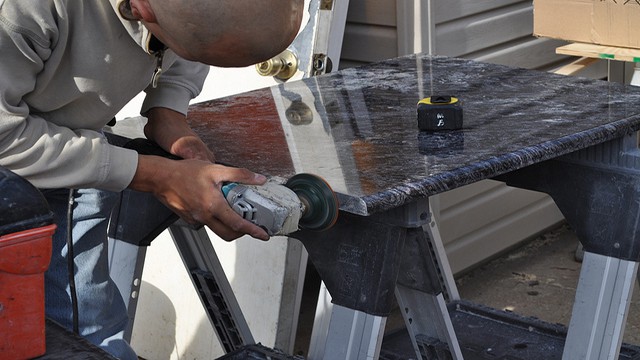Should You be Worried About Your Home Renovation?
Published August 29, 2017 at 4:10 pm

Whether you’re hiring a contractor for a planned renovation, or an unexpected repair, the law protects you as a consumer from fraud and other illegal behaviour. There are, however, more steps you can take to be proactive and protect yourself.Consumer Protection Ontario (CPO) has some tips for home renovations and repairs. Read up and be armed with knowledge!
5. Do Your Research
Ask friends, family, or other sources you trust for referrals, but don’t take their word for it.
Always ask to see the business’s contract and credentials before hiring. If they don’t have the right paperwork, they may not be reputable.
Check the province’s Consumer Beware List for charges, convictions, orders, actions or unanswered complaints.
Other online resources such as Yelp can be a great tool, but should always be cross-referenced. Again, if you read a positive (or negative) review, don’t take the reviewer’s word for it.
4. Get Multiple Quotes
Research multiple contractors. CPO recommends comparing estimates from at least three businesses. A significantly lower deal may be tempting, but a reputable company will charge and pay applicable taxes.
3. Take Your Time
Don’t rush to accept an offer, and when you do, never pay the full amount up-front. Instead, keep your deposit no higher than 10 per cent. This not only protects you from scams, but from legal trouble. The law requires you to hold back 10 per cent of the contract price until 45 days after the renovation is substantially complete.
4. Get a Written Contract
A contract has several advantages. It helps ensure you get what you pay for, and protects you from risks and liabilities.
Further, if you sign a contract for home renovations worth $50 or more, the Consumer Protection Act, 2002 gives you, among other things, a 10-day cooling-off period in which you can cancel the contract.
If you pay cash, though, get a detailed receipt from the contractor as a written record.
1. Know the Warning Signs
The Ontario government website notes some common scams:
First, there’s the door-to-door salesperson who “just happens to be in the neighbourhood”—with all the equipment needed for expensive same-day repairs.
Second, a contractor may try to talk you into making a large down payment, then take the money and run. Again, CPO recommends capping down payments at 10 per cent and never paying the full amount of the contract before the work’s finished. Legitimate home renovation companies have enough credit to afford their materials.
Lastly, beware the “paper-free deal.” A contract is the best protection you, the consumer, will have, but the paper trail for legitimate contractors doesn’t stop there.
A professional licence shows a contractor is qualified for the job.
Building permits show your municipality that the job itself meets building code standards and by-laws.
Keep these tips in mind, and your dealings with contractors will have a solid, secure foundation.
insauga's Editorial Standards and Policies advertising





